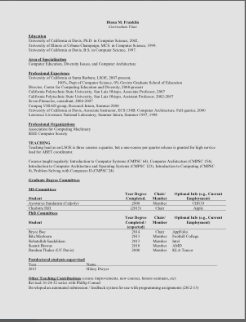News
- [Sep 2023] EdX Intro to Quantum Computing course rereleased
- [Aug 2021] Quantum Games NSF AISL proposal funded, in collaboration with UC Santa Barbara and UIUC
- [Aug 2020] Scratch Encore converted to full online instructin!
- [Aug 2020] TIPP&SEE ICER paper earns best paper award
- [Mar 2020] CANON Lab has 5 SIGCSE papers!
- [Oct 2019] $4M EIR Awarded to UC Irvine and UChicago
- [Sep 2018] Scratch Encore Modules 1-7 Released!
- [May 2018] Prof. Franklin testified at a Congressional Subcommittee Friday, May 18th at 8:15am CT
- [February 2018] NSF awards Quantum Computing Expeditions to UChicago [December 2017] CANON Research Lab highlighted in UChicago news
- [August 2017] Best Paper Award at ICER 2017
- [August 2017] New $2.5M grant from the National Science Foundation: LTEC (Learning Trajectories for Everyday Computing): Developing and researching 3rd, 4th, and 5th grade instructional units for fractions + CT.
- [April 2017] New $500K grant from the National Science Foundation: Comprehending Code: analyzing relationships between coding and reading comprehension to develop strategies to help struggling learners. 3 years, $500K.
- [March 2017] 3 papers at SIGCSE! an analysis of learning goals from research literature, analysis of 4th, 5th, and 6th grade work and implications for age-appropriate computing concepts, and insight into how a computing curriculum affects impressions of CS.
- [March 2016] Paper on the relationship between initialization in imperative languages and Scratch, a visual block-based language, and what that means for transitioning from Scratch to C, C++, or Java.
- [March 2016] Paper on our use of Universal Design for Learning, in our curriculum and learning environment, as well as accommodations, and modifications by teachers in the classrooms.
- [Feb 2016] DEPICT in the news! Our research project made the local Santa Barbara news for our CS for All work in elementary schools.
- [June 2015] Paper on how 4th grade students use programming constructs to provide interfaces for users with no explicit instruction presented at IDC (Interaction Design and Children).

 Eckhart Hall, Room 119
Eckhart Hall, Room 119